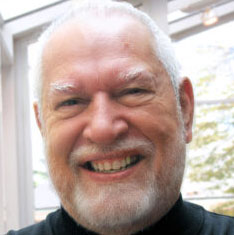TWiV reviews the latest data on the UK variant of SARS-CoV-2, including some properties of the variant and why it is being closely studied, development of liver cancer in a participant in a adenovirus-associated virus gene therapy trial, and answers to listener questions.
On this mid-week edition, does it matter that SARS-CoV-2 is mutating, seasonal coronavirus immunity is short-lived, another bogus claim that the virus was produced in a laboratory (it came from Nature), and answers to listener questions.
Raul Rabadan joins TWiV to explain the use of computational biology to demonstrate how recombination and mutation led to emergence of SARS-CoV-2.
The TWiVirions reveal bacteriophage genes that control eukaryotic reproduction, and the biochemical basis for increased Ebolavirus glycoprotein activity during the recent outbreak.
Jeremy, Aaron, and Ted join the TWiV team to discuss their work on identifying a single amino acid change in the Ebola virus glycoprotein from the West African outbreak that increases infectivity in human cells.
Vincent visits the University of Michigan where he and Kathy speak with Michael, Adam, and Akira about polyomaviruses, virus evolution, and virus assembly, on the occasion of naming the department of Microbiology & Immunology a Milestones in Microbiology site.
The TWiV teams reviews a MERS-coronavirus serosurvey and an outbreak in South Korea, and constraints on measles virus antigenic variation.
The TWiVumvirate discusses a whole Ebolavirus vaccine that protects primates, the finding that Ebolavirus is not undergoing rapid evolution, and a proposal to increase the pool of life science researchers by cutting money and time from grants.
Vincent visits Vanderbilt University and meets up with Seth, Jim, and Mark to talk about their work on a virus of Wolbachia, anti-viral antibodies, and coronaviruses.
The TWiVers discuss the growing Ebola virus outbreak in West Africa, and an epidemic of respiratory disease in the US caused by enterovirus D68.









